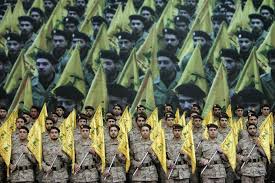 Local Editor
Local EditorThe debkafile "Israeli" website revealed that the appointment of Military Intelligence Director Maj. Gen. Aviv Kochavi to OC Northern Command, announced Friday, April 25, raised some eyebrows in top "Israeli" army command circles.
During the three years he served as AMAN chief, Kochavi was credited with enhancing the corps' operational capabilities to the highest standard in its history and transforming it into a combat force.
However, Kochavi was also responsible for three major miscalculations.
According to debkafile, "In 2012, he overestimated the Muslim Brotherhood's Mohamed Mursi's prospects of lasting the course as Egyptian's first elected president and failed to pick up on the coup to unseat him when it was hatched by strongman Gen. Abdel-Fatah al-Sisi, who is himself running for the presidency next month."
"This misjudgment affected "Israeli" policy-making adversely up to the present with regard to the Brotherhood's Palestinian offspring Hamas and the Gaza Strip."
The website also mentioned that "the general's second mistake was the opposite of the first. While overrating Mursi's chances of survival, he underrated those of the Syrian president Bashar a-Assad. In that error, he was in august company. Prince Bandar Bin Sultan made the same mistake and paid for it by losing his job as Director of Saudi General Intelligence on April 15."From the early days of the war in 2011, the AMAN chief stuck to the conviction that al-Assad was riding for a fall, refusing to acknowledge that the war had turned in his favor from the beginning of 2013.
Kochavi's third slip-up was his acceptance of the Netanyahu government's decision to let Hizbullah lend its fighting strength to al-Assad. This increment became a strong factor in bringing about Syrian military successes against the Syrian insurgency.
This "Israeli" policy, which drew heavily on AMAN's recommendations and assessments, was motivated by two objectives:
1. To get Hizbullah's forces removed far from the Lebanese border with "Israel", and
2. To let Hizbullah drain its strength by its division between the two fronts.
"Israeli" strategists calculated that to keep Hizbullah's strength down, it would be enough to apply the brakes to its supply of high-quality and quantities of weapons, by bombing consignments ad hoc as they were transferred from Syria to Hizbullah bases in Lebanon.
Neither objective was achieved.
The fighting in Syria did not weaken Hizbullah but, to the contrary, toughened its operatives by hard combat conditions.
Hizbullah is emerging with a high reputation as the dominant force in Lebanon, facing no real challenge from any Western or Middle Eastern political, military or intelligence quarter.
Its intervention in the Syrian conflict has given Hizbullah strategic depth, a great asset in the event of a war with "Israel".
All these benefits accrued from - and contributed to - Iran's tightening grip on Syria and the enhancement of their three-way alliance in the region.
Prince Bandar lost his job mainly because he was unable to deliver on the personal promise he gave King Abdullah to bring about the downfall of President al-Assad at the hands of Saudi-backed armed groups. He was also criticized for seeking to attain this goal by associating with extremist elements in the Syrian rebel movement, including some tied to al-Qaeda.
Unlike the Saudi prince, the "Israeli" intelligence chief was not kicked out but sideways. His new appointment as OC Northern Command takes him out of the back rooms at General Command headquarters in Tel Aviv and puts him on the front lines against Syria and Hizbullah.
There, he will have to grapple with the consequences of the mistakes he made far from the action.
Source: debkafile, Edited by website team
28-04-2014 | 12:06

